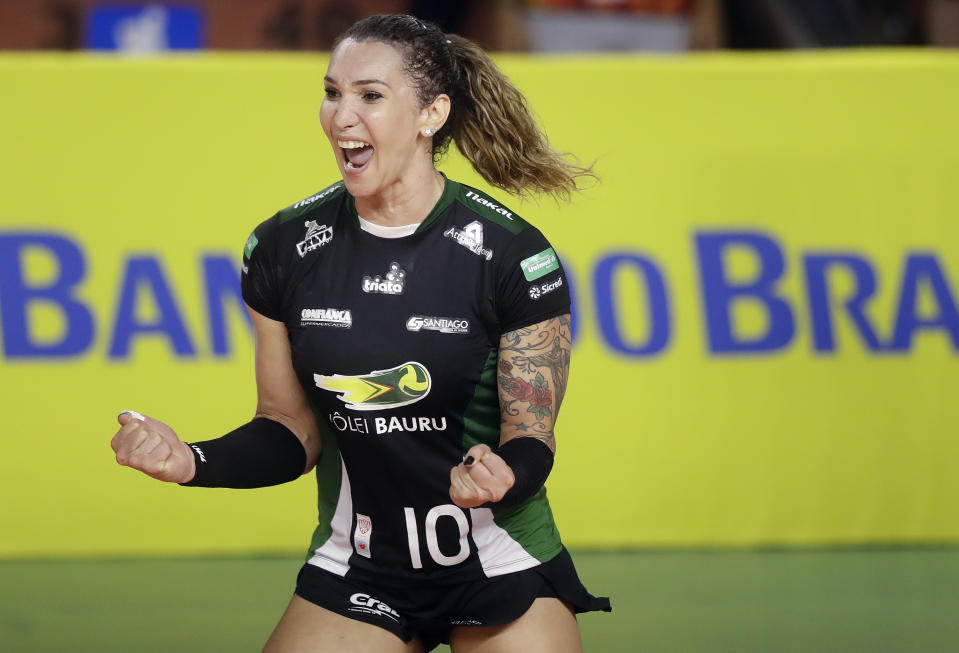Transgender volleyball player debuts in Brazil's top league, sets sights on Tokyo Olympics

Brazilian volleyball player Tiffany Abreu made her debut Tuesday in the country’s top volleyball tournament, Superliga. She is 33 years old.
This is not her first foray into high-level volleyball. For much of her adult life, Abreu played in Europe, South America and Indonesia. But then, she played as a man.
In 2012, Abreu made the decision to leave volleyball and transition to a transgender woman.
Only after her transition, she learned that she was allowed to compete as a woman and started the process that led to her debut Tuesday night. She told her story to the Associated Press.
“I took every needed step after my agent said I could play women’s volleyball,” Abreu told AP. “He knows the rules and said other transsexual athletes play in smaller leagues. So I decided to come back.”
Now she’s eyeing the 2020 Summer Olympics in Tokyo.
She’s doing so thanks to a 2016 International Olympic Committee ruling allowing transgender athletes to compete. And if she’s good enough to qualify, the Brazilian coach says he’s happy to have her.
“Tiffany is legally apt to play in the Superliga,” Brazil coach Jose Roberto Guimaraes told AP. “I don’t see any problem in calling her.”
If he does, she would be playing on one of volleyball’s most high-profile teams. Brazil won gold in 2008 and 2012 and is a perennial contender to make the medal stand.
And it will be sure to court controversy. As the world adapts to a more accepting culture of transgender people, sports remain among the most volatile venues for acceptance. Many don’t like the idea of someone who was born a man being allowed to compete with women, believing that it imparts an unfair advantage.
Former Brazilian volleyball player Ana Paula Henkel holds that belief.
“It is not a matter of prejudice, it is physiology,” she tweeted. “Most players don’t think it is fair for transsexuals to play against women. And it is not. (Abreu’s) body was built with testosterone all life long.”
It’s reminiscent of the 2012 Games in London, when double-amputee South African sprinter Oscar Pistorius was allowed to compete with two prosthetic legs. Many protested his eligibility, believing that his spring-like prosthetics allowed him an unfair advantage on the track. Alas, he was allowed to compete after going through several legal battles. He ran twice, once in the 400-meter heat and again in the semifinal, where he was eliminated.
The 2020 Games are still in the distance. We’re a long way from knowing what Brazil’s volleyball team will look like in three years. But if an aging Abreu doesn’t have what it takes to make the team, it remains a matter of when rather than if an openly transgender athlete competes in the Olympic Games.
Related Video:
Watch news, TV and more on Yahoo View.

 Yahoo Sports
Yahoo Sports 
